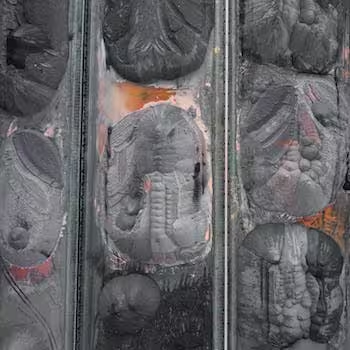-
Contents
“Unlock Your Career Potential with AI: Let Artificial Intelligence Help You Grow as a Chemical Plant and System Operator!”
The use of artificial intelligence (AI) in the chemical plant and system operator industry is becoming increasingly popular. AI can help operators to improve their efficiency, accuracy, and safety while also providing them with the opportunity to grow their career. AI can be used to automate processes, monitor systems, and provide predictive analytics that can help operators make better decisions. This article will explore how AI can be used to help Chemical Plant and System Operators with their career growth. It will discuss the benefits of using AI, the challenges associated with its implementation, and the potential for career growth that it offers.
How AI Can Help Chemical Plant and System Operators Improve Their Career Growth

As the chemical industry continues to evolve, so too must the skills and knowledge of its operators. Artificial intelligence (AI) is becoming increasingly important in this field, offering new opportunities for career growth and development. AI can help Chemical Plant and System Operators improve their career growth by providing them with access to more accurate data, improved decision-making capabilities, and enhanced safety protocols.
AI can provide operators with access to more accurate data. By using AI-driven analytics, operators can gain insights into the performance of their systems and plants that would otherwise be difficult or impossible to obtain. This data can be used to identify areas of improvement and optimize operations for greater efficiency. Additionally, AI-driven analytics can help operators detect potential problems before they become serious issues, allowing them to take corrective action quickly and prevent costly downtime.
AI can also help operators make better decisions. By leveraging AI-driven predictive analytics, operators can anticipate future trends and make informed decisions about how best to manage their systems and plants. This can help them stay ahead of the competition and ensure that their operations remain competitive in the long run.
Finally, AI can help operators improve safety protocols. By using AI-driven analytics, operators can identify potential safety risks before they become serious issues. This allows them to take proactive steps to mitigate these risks and ensure that their operations remain safe for everyone involved.
In conclusion, AI is becoming increasingly important in the chemical industry, offering new opportunities for career growth and development for Chemical Plant and System Operators. AI can provide operators with access to more accurate data, improved decision-making capabilities, and enhanced safety protocols, all of which can help them improve their career growth.
Exploring the Benefits of AI for Chemical Plant and System Operators
The use of artificial intelligence (AI) in chemical plants and systems is becoming increasingly popular as operators look for ways to improve efficiency and safety. AI can provide a range of benefits to operators, from improved process control to enhanced predictive maintenance. In this article, we will explore the potential advantages of AI for Chemical Plant and System Operators.
One of the primary benefits of AI for Chemical Plant and System Operators is improved process control. AI-driven automation can help operators monitor and adjust processes in real-time, allowing them to quickly identify and address any issues that arise. This can help reduce downtime and ensure that processes are running smoothly and efficiently. Additionally, AI can be used to optimize production schedules, helping operators maximize output while minimizing costs.
AI can also be used to improve predictive maintenance. By analyzing data from sensors and other sources, AI can detect patterns that may indicate potential problems before they occur. This allows operators to take preventive measures before an issue arises, reducing the risk of costly downtime or damage to equipment. Additionally, AI can be used to identify areas where maintenance could be improved, helping operators make more informed decisions about how best to maintain their systems.
Finally, AI can help operators improve safety in their plants and systems. By monitoring data from sensors and other sources, AI can detect potential hazards before they become a problem. This allows operators to take steps to mitigate risks before they become an issue, reducing the likelihood of accidents or injuries in the workplace. Additionally, AI can be used to analyze data from past incidents, helping operators identify areas where safety protocols could be improved.
In conclusion, there are many potential benefits of using AI for Chemical Plant and System Operators. From improved process control and predictive maintenance to enhanced safety protocols, AI can help operators maximize efficiency while minimizing costs and risks. As the technology continues to evolve, it is likely that these benefits will only increase over time.
Examining the Impact of AI on the Career Paths of Chemical Plant and System Operators
The introduction of artificial intelligence (AI) into the workplace has had a profound impact on the career paths of Chemical Plant and System Operators. As AI technology continues to evolve, it is becoming increasingly capable of performing many of the tasks that were once performed by human operators. This has led to a shift in the roles and responsibilities of these workers, as well as a need for them to develop new skills in order to remain competitive in the job market. In this article, we will examine the impact of AI on the career paths of Chemical Plant and System Operators, and discuss how they can best prepare for the future.
AI technology has enabled machines to take on many of the tasks that were once performed by human operators. This includes monitoring and controlling chemical processes, analyzing data, and making decisions based on that data. As a result, Chemical Plant and System Operators are no longer required to perform these tasks manually. Instead, they are now responsible for overseeing the AI systems and ensuring that they are functioning properly. This shift in responsibilities has led to an increased need for workers with technical skills such as programming and data analysis.
In addition to requiring new technical skills, AI technology has also changed the way that Chemical Plant and System Operators interact with their colleagues. As AI systems become more sophisticated, they are able to take on more complex tasks such as problem-solving and decision-making. This means that human operators must be able to collaborate effectively with AI systems in order to ensure that operations run smoothly. As such, workers must develop strong communication and interpersonal skills in order to work effectively with both humans and machines.
Finally, AI technology is also changing the way that Chemical Plant and System Operators are evaluated. As AI systems become more capable of performing complex tasks, employers are beginning to use them as a tool for assessing employee performance. This means that workers must be able to demonstrate their knowledge and skills in order to remain competitive in the job market.
Overall, it is clear that AI technology is having a significant impact on the career paths of Chemical Plant and System Operators. As AI systems become increasingly capable of performing complex tasks, workers must develop new technical skills as well as strong communication and interpersonal skills in order to remain competitive in the job market. By preparing for these changes now, Chemical Plant and System Operators can ensure that they are well-positioned for success in the future.
Q&A
1. How can AI help Chemical Plant and System Operators with their career growth?
AI can help Chemical Plant and System Operators by providing them with predictive analytics to anticipate potential problems, automate routine tasks, and optimize processes. AI can also provide real-time data analysis to help operators make better decisions and improve safety. Additionally, AI can be used to identify areas of improvement in the plant’s operations and suggest ways to increase efficiency.
2. What are some of the benefits of using AI in a chemical plant?
Using AI in a chemical plant can provide numerous benefits, such as improved safety, increased efficiency, reduced costs, and improved decision-making. AI can also be used to identify areas of improvement in the plant’s operations and suggest ways to increase efficiency. Additionally, AI can be used to monitor environmental conditions and alert operators of any potential risks or hazards.
3. What skills do Chemical Plant and System Operators need to use AI effectively?
Chemical Plant and System Operators need to have a basic understanding of computer programming languages such as Python or R in order to use AI effectively. Additionally, they should have an understanding of data science concepts such as machine learning, deep learning, natural language processing, and predictive analytics. Operators should also be familiar with the specific software tools used for AI applications in their industry.In conclusion, AI can be a powerful tool for Chemical Plant and System Operators to help them grow their careers. AI can provide valuable insights into the operations of the plant, allowing operators to make more informed decisions and improve their efficiency. Additionally, AI can help operators identify potential problems before they become major issues, reducing downtime and increasing productivity. Finally, AI can help operators stay up-to-date on the latest industry trends and technologies, allowing them to stay ahead of the competition.
If you’re a chemical plant or system operator looking to take your career to the next level, then AI is the way to go! AI can help you automate processes, increase efficiency, and make better decisions. Take advantage of this technology today and start your journey towards career growth. Click here to learn more about how AI can help you reach your goals.


